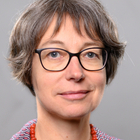The Current Column
The 2030 Agenda has been adopted and will now be implemented
Scholz, ImmeThe Current Column (2015)
German Development Institute / Deutsches Institut für Entwicklungspolitik (DIE) (The Current Column of 28 September 2015)
New York, Bonn, 28 September 2015. The gavel fell on 25 September 2015 at 11:46 a. m. New York time, signifying the adoption of the 2030 Agenda. Delegates at the UN sustainable development summit gave a standing ovation and the celebrations began. A light show and music from Shakira added to an emotional moment that, despite being stage-managed, outlasted the summit itself. Time and again, delegates and representatives of UN bodies and NGOs that had taken part in the negotiations of the last two years could be heard expressing delight that the agenda had finally been adopted. What did the attending heads of state have to say? Representatives of many countries, large and small, rich and poor, pointed to the strong correlation between poverty reduction and climate change mitigation. Croatia’s President was the first to speak, stating that the political framework for an effective 2030 Agenda would only be complete once an ambitious climate treaty had been concluded in Paris. Angela Merkel referred to global decarbonisation as a necessary step. Narendra Modi from India praised the 2030 Agenda and welcomed the prominence given to environmental goals, especially with regard to climate change, sustainable consumption and ocean ecosystems. The agenda’s broad thematic scope allowed that many delegates to link their own development goals to it. This encourages ownership, but also hints at potential difficulties ahead with the indivisibility of the agenda, particularly when it comes to implementing the more ambitious and contentious goals. This made it all the more encouraging that much of the input in the plenary session and the side events focused on the interplay between economic, social and environmental improvements. Paula Caballero, who elaborated the proposal for the Sustainable Development Goals (SDGs) in 2011 as a member of the Colombian Ministry of Foreign Affairs and brought it to the negotiating table, said: “We’re no longer talking about individual development outcomes, but rather new development pathways.” Colombia sees the SDGs as providing a solid basis for peace-building and societal reforms at home. 47 of the 70 targets that are part of the peace plan with the guerrillas correspond to the SDGs and have already been incorporated into the country’s national development plan.
While getting on board with the 2030 Agenda was an obvious choice for developing county representatives, keen as they are to see their nations progress, things were not as simple for the wealthy states. While Barack Obama referred to climate change as a threat in his Sunday address, he mainly focused on the traditional duty of wealthier nations to play their part in fighting poverty around the world and thereby to help all people, not least all children, to claim their rights. In doing so, Obama interpreted the agenda in more classic development-policy terms, while Angela Merkel took a more progressive approach, stressing the universal applicability of all the goals and, consequently, also drawing attention to the changes facing prosperous countries. She said that Germany would continue to develop its sustainability strategy in line with the 2030 Agenda and present it for international review as early as 2016.
Germany and other traditional donors also mentioned financial contributions for implementation. China announced its own USD 2 billion fund to support SDG implementation in the South, as well as plans to provide up to USD 12 billion by 2030 for cooperation with the least developed countries. India intends to share its own resources and its proven solutions with other nations.
The 2030 Agenda is a comprehensive development agenda, which is precisely why it must not be viewed as a mandate for development policy-makers alone. It requires a new level of cooperation within and between national governments with a view to establishing policies that address domestic and international issues. Achim Steiner from the United Nations Environment Programme went one step further, calling for a more decisive approach to regulating markets in order to meet social and environmental requirements. The Swedish Foreign Minister stated: “Development aid will not solve the problem. Political solutions are what is needed, from all of us.” She added that peacebuilding, state building and the rule of law are therefore at the heart of the agenda, and not only with a view to monitoring and reporting.
It thus became clear that the 2030 Agenda cannot be about technical solutions or adapting to environmental and economic constraints, but rather about society coming together to negotiate far-reaching changes. For decades now, developing countries have been requested to implement ambitious changes, but it is a new experience for industrialised nations to be requested to do this by an internationally agreed agenda. Rich countries are more accustomed to introducing reforms when times are good and when there is sufficient funding to finance new programmes (and keep old ones running in order to curb resource distribution conflicts). Social, climate and energy policy are not the only areas where change is needed; the 2030 Agenda also requires wealthier countries to shape their trade and security policy according to universal values of fairness and equality of opportunity.

